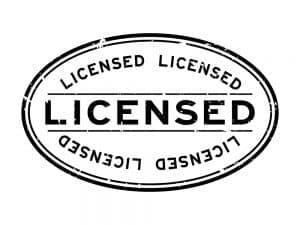How Professional Licenses Factor into New Jersey Divorces
Walk side by side with a divorce attorney who knows how to handle the specifics of your particular case when going through a divorce with a professional license in Monmouth and Ocean County, NJ

Many divorcing couples in New Jersey look at their married life and reflect on how each partner contributed to the success or failure of the marriage. So, a young couple that met and fell in love while both were in school, planning careers and children eventually, may have had a different vision than the one looking back during a divorce. For instance, a license to practice law is valuable. It allows the practitioner to earn earnings as a practicing lawyer and future opportunities as a judge, legal advisor, advisory board member, and a host of other opportunities. Other professional licenses have inherent value as well.
Medical doctors, nurses, counselors, therapists, teachers, electricians, building contractors, and cosmetologists all need licenses to practice their trades. All licensed professionals have an earning capacity associated with their profession. The average annual income of any professional can be measured by data collected from reputable statisticians that publish professional earnings. And any one of these professionals can fit the scenario of one party obtaining the license while the other party supported them, sacrificing their career advancement.
A professional degree is not considered property for purposes of a divorce.
Even though a professional license is acquired during the marriage, the value cannot be accurately measured to assign interests between the spouses. First, the license is only as profitable as the person using it, which may vary among professionals, so there is no real objective standard of value. Moreover, a license cannot be bought and sold, so a fair market value cannot be readily assigned. And finally, the future value of a license cannot be truly ascertained. The value of a license in the future depends on too many incalculable factors, like the practitioner’s future health that affects their earnings or an economic recession, among many possibilities.
On the other hand, a professional’s business can be evaluated with certainty, and that value may or may not be a marital asset. If the business began during the marriage, it is most likely to be considered a marital asset subject to equitable division. However, problems exist when the business would suffer or fail if one party maintained a significant interest in the business after the divorce. For example, a contractor who cannot afford to pay their staff or subcontractors due to a divorced spouse’s interest in the business may not be able to sustain the business. And if child support depends on the contractor’s income, the children may suffer. Additionally, because the practice requires a professional license to operate, one party cannot be substituted to take over the business unless they too had the required license, so the value of the business is partially tied to the license.
Since the business or practice of a licensed professional may not be marketable or practical to divide, a court more likely will make up the difference in one party’s award of the business or practice by allotting another marital asset to the other party to compensate. A court may also award reimbursement alimony to compensate one party’s sacrifice to the other’s professional advancement. This is not the same alimony for daily living maintenance. That kind of alimony is based on the need of one spouse and the ability of the other spouse to pay it. Generally, alimony is calculated on the parties’ earnings, debts, and property holdings, among other factors related to each individual’s age, earning capacity, and share of the child-rearing duties.
Are there any other considerations to take into account?

What are some considerations when awarding Assets and Alimony?
Other considerations for awarding alimony are the parties’ property, whether one party stays home to raise the children, the contribution of each spouse to the increase or maintenance of a property, the marital debts, and tax consequences of property distribution and alimony. Alimony is taxable income in New Jersey, so any offset for alimony must consider the tax consequences. Sometimes it makes more sense to forego alimony for a larger share of marital property to equalize a division. At other times, it makes sense to get more monthly support, especially if minor children are involved. The supported spouse often needs education or vocational training time to become self-sufficient.
For example, the parent staying home with the children may need to stay in the residence while the children are in school to maintain their lifestyle and not disrupt their education. A judge could award the residence to one spouse and the practice or business to the licensed professional if the values are similar. Otherwise, a judge could design a combination of alimony, other property swaps, and the residence. However, there may be tax consequences on transfers of some property types, even though the transfer is between spouses (typically non-taxable transfers). For example, awarding one party a vacation home may result in capital gains taxes somewhere down the line.
An Example Case of Divorce with a Professional License
For example, one of the spouses may have earned a paralegal degree instead of a law degree so the other one could finish law school and become an attorney. The paralegal may have supported the couple as they struggled for the first eight to ten years of their marriage until the lawyer became licensed and financially stable in a law practice that helped paid off student loans. The paralegal assisted at the office to help build the practice but then quit working to care for their children. After over fifteen years of marriage and two children, the parties plan to divorce. By then, the paralegal has been out of the job market for seven or eight years, while the attorney has a successful law practice that supported the family well.
When it comes time to divide up the couple’s assets and debts, the paralegal might object to a proposed agreement to divide the assets and debts equally and go their separate ways. They might feel wronged by the fact that the attorney has their license to practice law, a thriving business, and the potential to earn far more than the paralegal. They may want compensation for the time they spent supporting their spouse. At the same time, they built a career and business, and for the value of that professional license, they helped to procure, even helping the lawyer study for the bar exam. This opens the door for many nuanced questions regarding each spouse’s contribution to their marital life as a whole, the sacrifices and supports offered by each spouse regarding the other, and how such contributions can and should be quantified and accounted for.
Connect with a Brick, NJ Divorce Attorney for Professionals Today
Divorces can be quite complex. Without the help of a professional, a divorcing spouse must know about family law, business valuations, professional licenses, alimony, child support, and various tax consequences. Most people rely on a family law attorney with knowledge about divorce laws but also with contacts to the professionals who can evaluate businesses and assess tax consequences.

Seasoned New Jersey Family Law Attorney Peter J. Bronzino is highly equipped in handling all aspects of divorce and related matters throughout the Monmouth and Ocean County, New Jersey area, including Manchester, Berkeley Township, Brick, Jackson, Toms River, Beach Haven, and Point Pleasant.
Contact us online or at our Brick, NJ office today at (732) 812-3102 to schedule a free and confidential consultation to discuss your individual divorce situation or family law concerns.







